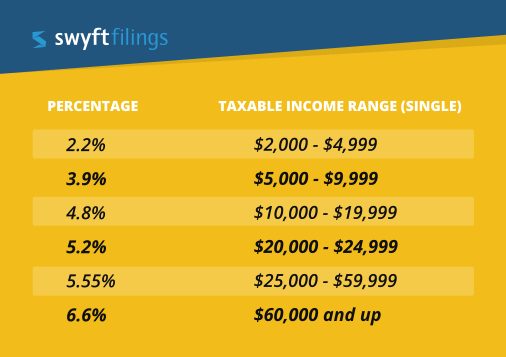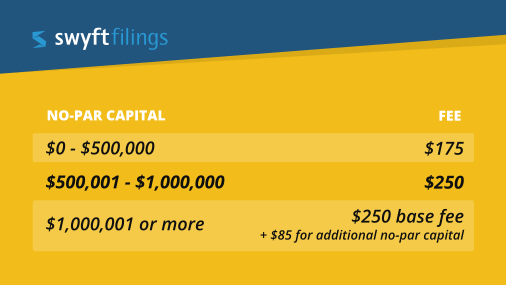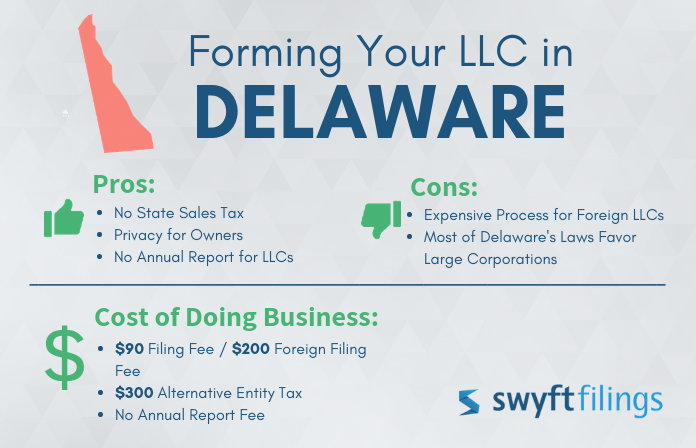State Guides
Guide to Forming an LLC in Delaware

Follow our free guide to form an LLC in Delaware
- Pros and Cons of Forming an LLC in Delaware
- Starting Your Delaware LLC
- Maintaining Your Delaware LLC
- Additional Delaware Resources
Why is Delaware such a unique location to form your LLC? Read our two-phased comprehensive guide that has everything you need to know about forming your Delaware LLC.
Pros and Cons of Forming an LLC in Delaware
Pros
No State Sales Tax
Delaware is one of a few states in the nation that does not charge sales tax. Sales on cigarettes, alcohol, and gasoline are still taxed; however, the tax rate for these items is among the lowest in the U.S.
Privacy for Owners
Delaware does not require full disclosure of an LLC’s members in the incorporation paperwork. The business may select an organizer who is neither a member or manager to be listed on the paperwork that is filed with the Secretary of State.
No Annual Report for LLCs
Delaware does not require LLCs to file an annual report. This particular requirement, however, is still in place for corporations and non-profit organizations.
Cons
Expensive Process for Foreign LLCs
For business owners who choose to form an LLC in Delaware while living/operating in another state, the requirements and overall process can be complicated and expensive, starting with a mandatory $200 filing fee for Foreign Qualifications.
Most of Delaware's Laws Favor Large Corporations
Delaware’s favorable corporate/tax laws make it a popular home for many major corporations — 50% of publicly traded corporations and 60% of Fortune 500 companies in the U.S. But most of those laws are in place to service and protect bigger corporations; smaller companies, especially those not physically located in Delaware, may not see much the same benefits.
Cost of Doing Business
- $90 filing fee/ $200 foreign filing fee
- $300 Alternative Entity Tax
- No annual report due
Phase One: Starting Your Delaware LLC
Even though starting your Delaware LLC may appear difficult, the process is very straightforward and easy when you have help.
- Step 1: Name your LLC
- Step 2: Establish Ownership of your LLC
- Step 3: Decide on a Registered Agent
- Step 4: File the Certificate of Formation
- Step 5: Create your Operating Agreement
- Step 6: Register for an EIN
Step 1: Name Your Delaware LLC
Choosing a name for your new business is an important first step in forming your Delaware LLC. As you narrow down the list of possible company names, there are a few guidelines the state and federal government have set concerning business names.
Tip: Use a free business name search tool to ensure your company’s desired name is available.
Business Name Guidelines
- The official name of your business must end with: Limited Liability Company, Limited Company, LLC, or L.L.C
- Your business name cannot be intentionally misleading to consumers
- The name of your new LLC must not be similar to another organization’s name/trademark
Restrictions
Depending on the state that you form your LLC in, a few restrictions may apply.
A few examples include:
- “Lottery” and “Bank” are ineligible for use (any state)
- Terms that represent educational or Veterans’ organizations are restricted
- Terms related to the Armed Forces or civil servants (police, EMT, fire)
LLC business names associated with government and/or financial entities are not always restricted - it depends on the state. Additional paperwork may be required.
URL Availability
Due to the growing importance of technology in the current culture, creating an online presence is important for a successful business. Check if your domain name is available at a number of online web hosting sites.
Step 2: Establish Ownership
The owners of an LLC are known as members and managers. All LLCs will have members, but not every LLC will have managers. The difference in title depends on the management structure of the business.
The LLC Management Structures:
- Member-managed: Ownership is divided among members of the LLC, and all parties receive profits according to an agreement (distribution of responsibilities, share of liability, etc.)
- Manager-managed: One person is appointed as the main operator, and other LLC members such as investors are not actively involved in day-to-day operations.
Delaware LLC Member Guidelines
Required Number of Members
Delaware LLCs must have at least one member or manager in order to form a business.
Member Disclosure Requirements
An organizer/authorized representative may sign and file the Certificate of Formation in place of the LLC members.
Age Restrictions
LLC members in Delaware may be of any age.
Residence Restrictions
There are no residency restrictions imposed on LLC members in Delaware.
Step 3: Find a Registered Agent in Delaware
The registered agent is necessary for all LLCs formed in Delaware. Your business cannot be official without filling this position.
What is a registered agent?
A registered agent is a third-party who is responsible for handling service of process notices, communication with the Secretary of State, and other official government documents.
Why do you need a registered agent?
Whenever you start an LLC in Delaware, the law requires a person to consistently be available to receive government documents.
What are the main requirements for a registered agent?
- The registered agent must have a physical address — not a P.O. Box
- The registered agent must be available during business hours
Who can be a registered agent in Delaware?
The requirements to be a registered agent are as follows:
- A resident with a physical address in Delaware
- An LLC or corporation that is licensed to conduct business in Delaware
Is the registered agent’s contact information publicly accessible?
The name and contact information of the LLC’s registered agent is a matter of public record.
Can I be my own registered agent for my business?
You are legally allowed to be your own registered agent as long as you have a physical address in Delaware.
Is being my own registered agent discouraged?
Since the registered agent’s name and address are publicly listed, LLC business owners who choose to be their own registered agent risk compromising their personal information.
Tip: Avoid the hassles and choose Swyft Filings to fill the registered agent needs for small businesses in Delaware. Find more information here.
Step 4: File the Certificate of Formation
One of the most important steps involved in legally forming an LLC in Delaware is filing the Certificate of Formation with the Secretary of State.
What is the Certificate of Formation?
The Certificate of Formation is a legally binding foundational document that is filed with the state government to officially form your LLC.
Why do I need the Certificate of Formation?
Without the Certificate of Formation, your LLC business in Delaware will not be legally recognized by the Secretary of State.
What is the cost of filing the Certificate of Formation?
The filing fee for Delaware is $90. The filing fee for a foreign LLC is $200.
What information is included in the Certificate of Formation?
- The name and address of the LLC
- The name of the organizer filing the paperwork
- The name and location of the registered agent
- The chosen LLC management structure
- The duration of the LLC (perpetual or not)
Additional Delaware Filing Requirements — Foreign LLCs
If you plan to live and operate your business in another state, you can still form your LLC in Delaware, but you must register as a Foreign LLC.
A foreign LLC is any business that is “housed” in one state and incorporated in another. You can found and build a flower shop in Texas while your LLC is technically formed in Delaware.
Even though the state government allows (and even welcomes) this, it adds to the formation process with more paperwork and more expense.
Important Points to Consider:
- You must also form an LLC in the state where your business will operate
- You are still subject to the requirements (fees and taxes) of both states
Please Note: Conducting business in Delaware without filing as a Foreign LLC can result in a $200 fine.
Step 5: Create an LLC Operating Agreement
The LLC Operating Agreement, although not necessary for LLC filing, is a great way to organize leadership and have something to refer to.
What is an LLC Operating Agreement?
The LLC Operating Agreement is a legal document that outlines the rights and responsibilities of all the people involved in the business and lists the operational procedure of the business.
Why do I need an LLC Operating Agreement?
In times of dispute or instability, the LLC Operating Agreement settles disagreements because it clearly defines the roles in the company. The LLC Operating Agreement often prevents agreements from happening because the concerns are already addressed.
Do I need to file the LLC Operating Agreement?
The LLC Operating Agreement is for the benefit of your LLC and remains in-house and does not need to be filed with the state.
What goes into an LLC Operating Agreement?
While there is not a set rule of what must be included in your LLC operating Agreement, most documents include the following the information:
- List of the members/managers and their roles
- Designation of authority in the LLC
- Initial capital contributions of the members
- Voting designations and percentages of the members
- Member transfer/addition rules and restrictions
- Distribution of profits
- Meeting schedule
Tip: Get a customized LLC Operating Agreement for your small business with Swyft Filings. Add structure to your LLC now.
Step 6: Obtain an EIN
The state of Delaware requires an EIN for any business that has/will have employees. Without an EIN, your Delaware LLC will not be able to conduct business.
What is an EIN?
This nine-digit number is assigned to your business by the Internal Revenue Service (IRS) and helps the government identify your business just like a personal Social Security number.
What does EIN stand for?
EIN is an acronym for Employer Identification Number. It is also known as a Federal Tax ID.
Are all businesses required to have an EIN?
Federal law dictates that certain types of business entities register for an EIN:
- Any business with employees (even if owned by one person)
- Any business with more than one member
- A partnership (LLC or C-corp)
Please Note: A sole proprietorship is not required to have an EIN, but it is still recommended.
Why does my LLC business need an EIN?
The more common reasons you would need an EIN are:
- To hire employees
- To open a bank account in the U.S.
- To file your company’s taxes
- To pay independent contractors
In short, if you make money through your business and it has employees, you must have an EIN.
Is the EIN publicly listed?
The EIN for your LLC will be part of public record.
Can I use my Social Security Number as the EIN?
If you are a sole proprietorship who wants an EIN for your business, you can elect to use your social security number; however, your EIN is part of public record.
Swyft Filings offers EIN services for small businesses in Delaware. Find more information here.
Phase Two: Maintaining Your Delaware LLC
The initial phase of setting up your Delaware LLC is complete and the next part of the process will further establish your LLC with the state and get you ready to do business.
The next phase of your LLC:
- Step 1: Register for the necessary taxes in Delaware
- Step 2: Apply for the required permits and licenses
- Step 3: Request a Certificate of Good Standing
Step 1: Register for Delaware State Taxes
All LLCs formed in Delaware must pay the annual Alternative Entity Tax — details are listed below:
Fee: $300
Due Date: June 1
Late Fees: $200 late fine plus 1.5% interest per month
State Income Taxes
Delaware’s state income tax rates are listed in the table below:

Corporate Tax Information
You can also choose to have your LLC taxed as a corporation; if so, you will be responsible for paying corporate taxes on your business’s earnings
Corporations in Delaware are required to pay two types of taxes:
- Corporation Income Tax (8.7%)
- Franchise Tax
The Delaware franchise tax is determined in two ways:
- Authorized Shares (determined by the number of shares)
- Assumed Capital Value (determined by the amount of no-par capital)
Authorized Shares Method

Assumed Capital Value Method

Additional Tax Information
Other taxes your LLC may need to pay:
- Gross Receipts Tax (from 0.1037% to 2.0736%)
- Employee Withholding Tax
- Unemployment Tax
Step 2: Apply for Business Licenses and Permits
The licenses and permits required for an LLC in Delaware can vary, depending on a number of variables:
- Location (city and county)
- Type of Business
- Industry
Tip: If you would like to see more in-depth information on licenses and permits, please feel free to visit the content in our learning library that covers business licenses and permits.
Step 3: Obtain a Certificate of Good Standing
Your Delaware LLC is officially ready for business, but there is still one last step — the Certificate of Good Standing.
Since many financial institutions and businesses require proof that your new business is fully compliant with the state, obtaining a Certificate of Good Standing provides your LLC with a “seal of approval” from the Secretary of State.
What is a Certificate of Good Standing?
The Certificate of Good Standing is an official notification from the government agency that confirms your entity has been properly filed and is still in compliance.
Who issues the Certificate of Good Standing?
The Certificate of Good Standing is generally issued by the Secretary of State.
When can I request a Certificate of Good Standing for my business?
A Certificate of Good Standing can be requested after your LLC has been officially formed through the Secretary of State.
Why do I need a Certificate of Good Standing?
In the course of conducting business, there will be times when you will need to prove that your business is properly filed and fully compliant with the state. Many banks and businesses will request a Certificate of Good Standing as part of the due diligence process (especially during major transactions).
Does the Certificate of Good Standing have an expiration date?
The Certificate of Good Standing does not expire/does not need to be renewed.
Swyft Filings can create a Certificate of Good Standing for your Delaware LLC. Click here for more information.

